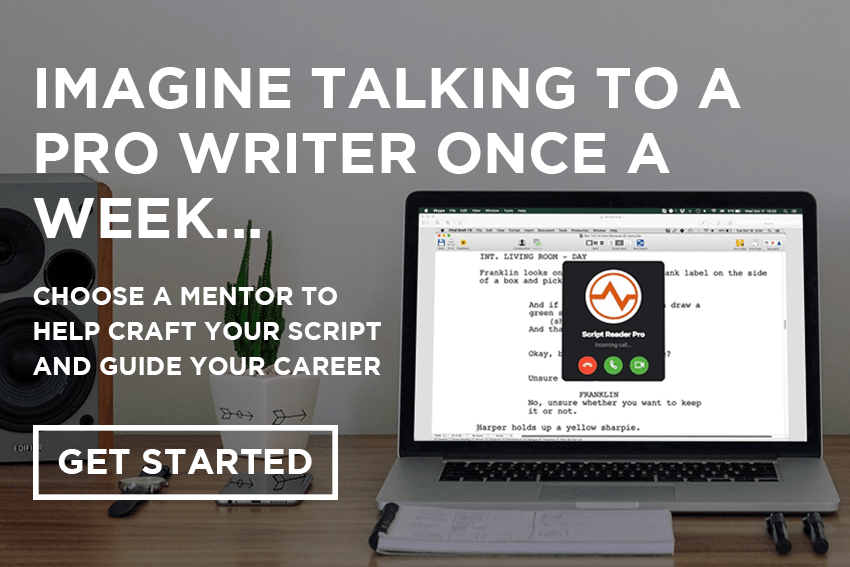
What are script editors and what can they do for your scripts?
Are you thinking about hiring a “script editor” but aren’t sure what exactly that term means? Let us clear up the confusion surrounding this title and help you decide if you should hire one.
“Script editor” is a term used in British television.
In the UK, the term “script editor” is used to describe a person who works closely with the production team. Their job is to work with production and writers to maintain the quality standards of a television or comedy series.
Much of the confusion surrounding the term “script editor” is because it is also used interchangeably with “script consultant” and “script doctor”.
However, they pretty much all mean the same thing: Get paid to assist Screenwriters improve their work.
Script Editor vs. Script Consultant vs. Script Doctor.
The difference lies in the type of services these individuals provide. If you hire someone as a script doctor/script consultant, you’re asking for extensive feedback on your script.
The term “script editor” is sometimes used to describe this service, but it really shouldn’t be.
“Script editing” refers to the services provided by some script doctors/script consultants when reviewing scripts and editing lines. or other type of editing service that can edit the content on the page.
The main difference between “editing” and “revision” or “consulting” services is that editors typically cut the script without going into the same level of detail in terms of story, characters, structure, etc.
Editing is not a consulting service. It’s usually a service of tidying up and polishing something that’s already in pretty good shape.
Therefore, we only recommend line editors to scripts that have received a “Consider” or “Recommended” rating from a reputable script consulting firm.
On this page you can find line editing examples to give you an idea of what the service is about.
For now, forget the technical details of these terms. Depending on the country you’re in and who you’re talking to, Script Editor/Script Doctor/Script Consultant may all mean the same thing.
Here’s a quick overview of what a sensible script editor or whatever you want to call them will look for in a script and destroy it.
Script editors will try to remove unnecessary dialogue.
The movie “is just life with the boring parts cut out.” This means stopping all small talk. In a well-written screenplay, characters don’t engage in small talk. every word they say in some way Move the story forward or reveal character and theme. And often at the same time.
The old chestnut about writing scenes is “try to get in as late as possible and try to leave as early as possible.” This means avoiding having your characters say anything irrelevant to each other. Unless it’s important to the plot or reveals character in some way.
Also, characters should never talk about things we already know. Near the end of the year Twelve years a slaveFor example, Buzz (Brad Pitt) asks Solomon (Chiwetel Ejiofor) how he ended up as a slave.
Rather than having Solomon tell it all for him, the film simply cuts to ten minutes later, where we pick up again, with Bass saying, “That’s quite a story.”
This is exactly the kind of thing a good script editor/script doctor would suggest to help speed up reading.

Script editor will cut youNecessary scene.
These are the biggest culprits of script overbloat. Each scene should move the story forward and hopefully reveal character. If not, then it shouldn’t exist.
You may have heard that a good way to test whether a scene should be in a script is to take it out and see what happens. We don’t like this suggestion because it doesn’t take into account its difficulty The author himself make this judgment.
Script editors either flag “dead scenes” or delete them themselves rather than having the writers delete them.
Script editors will cut youNecessary subplots.
Sometimes, a gangster subplot might creep into a few drafts. These will also be marked by the script editor.
Subgraphs exist only to Impact on the main plot. In other words, if you write a series of scenes in which your protagonist tries to set up friends on a blind date, but nothing happened If it turns out to be the protagonist, then they don’t belong in the script.
For example, in sidewaysJake gets together with Maya’s friend Stephanie in a subplot. After finally making things right with Maya, Miles accidentally tells her that Jack is engaged and Maya dumps him.
So the subplot is direct impact The main plot should always be like this. Otherwise, it becomes another item marked for deletion by the script editor.
Script editor may cut unnecessary workcontent.
As you probably know, a montage should have a specific function: display an actionusually performed by the protagonist.
An example is the famous “training montage” in sports and war movies. The hero has a week to exercise, such as fighting in a major battle or enlisting in the army. We then see them in the pool doing stretches, pull-ups and shooting practice in a series of quick scenes.
Often, they end the montage visibly better than they did at the beginning to add to the feeling that they are changing.
The key point is montage an action with a purpose. The hero should have a specific goal, just like in a scenario, except this time there’s usually little or no conflict. It exists simply to move the story along faster in a series of appropriate scenes.
However, the mistake many writers make is adding montage without a clear purpose. A common example is a montage of city/country life. Montage of family/friends life. Montage of traveling/driving/commuting etc.
In each case, the montage failed to advance the story and therefore was likely to have been cut by the script editor.
Script editor will cut younRequired characters.
At the risk of sounding repetitive, every character in the movie is There’s a reason there. If their impact on the main plot is unclear or non-existent, the Script Editor will remove them or recommend that you remove them.
Does your protagonist really need that constant sidekick? If the sidekick isn’t mentoring, advising, or opposing the protagonists, then they shouldn’t be in the script.
Often, script editors will suggest that several minor characters be fused together to form one. The protagonist will encounter several obstacles presented by different characters, which may in fact be the work of the same person.
###
We hope this clears up some of the confusion for you surrounding the roles of Script Editor, Script Consultant, and Script Doctor. Did you ever hire a script editor? Or do you prefer working alone?

Like this article? Read more Script Editor related posts…
4 important things you should do before hiring a script consultant
How to hire a professional script doctor for a fraction of the cost of Hollywood
How to become a screenwriter: A professional guide to launching your career
[© Photo credits: Pexels]

